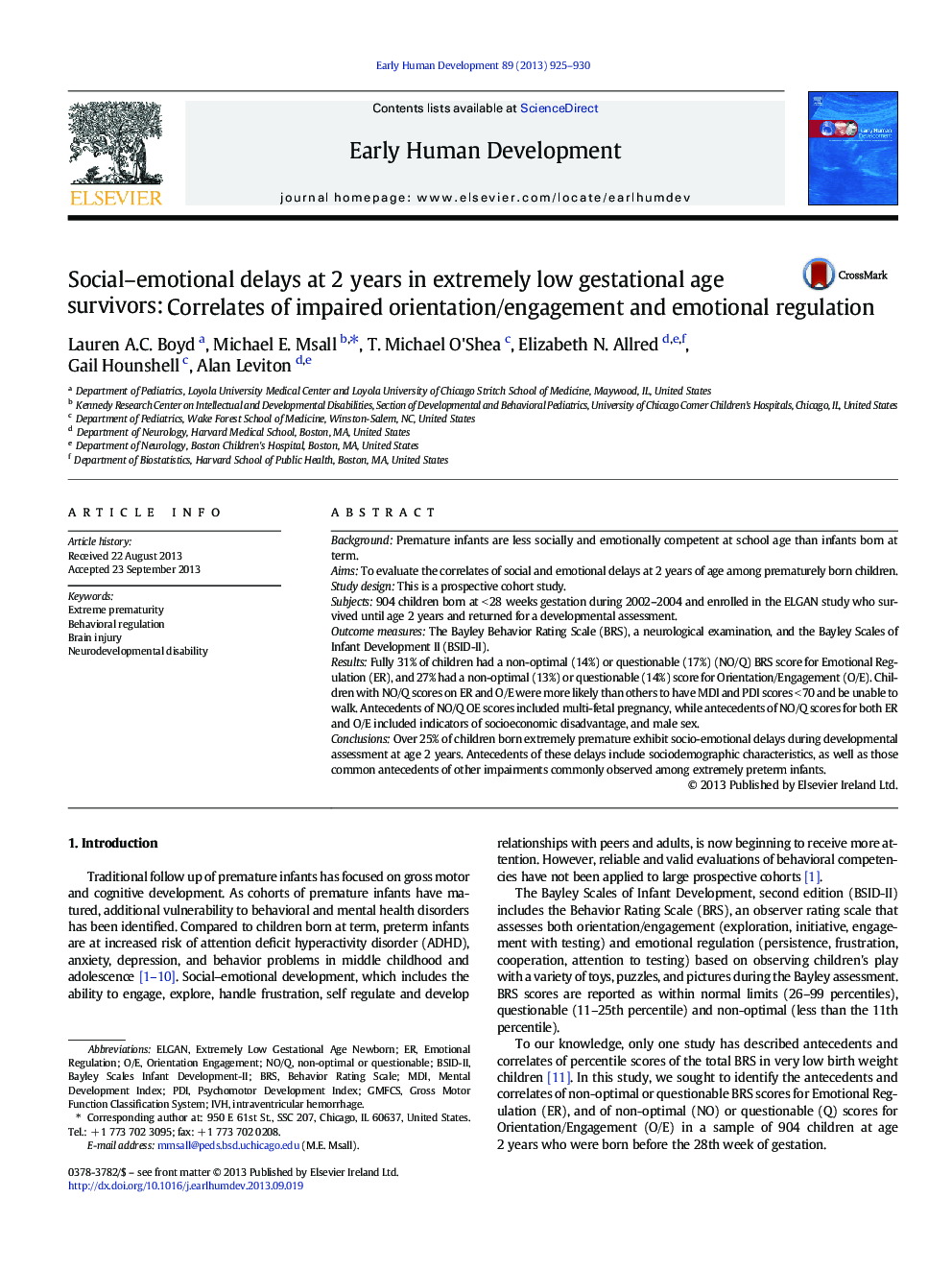| Article ID | Journal | Published Year | Pages | File Type |
|---|---|---|---|---|
| 6171914 | Early Human Development | 2013 | 6 Pages |
BackgroundPremature infants are less socially and emotionally competent at school age than infants born at term.AimsTo evaluate the correlates of social and emotional delays at 2Â years of age among prematurely born children.Study designThis is a prospective cohort study.Subjects904 children born at <Â 28Â weeks gestation during 2002-2004 and enrolled in the ELGAN study who survived until age 2Â years and returned for a developmental assessment.Outcome measuresThe Bayley Behavior Rating Scale (BRS), a neurological examination, and the Bayley Scales of Infant Development II (BSID-II).ResultsFully 31% of children had a non-optimal (14%) or questionable (17%) (NO/Q) BRS score for Emotional Regulation (ER), and 27% had a non-optimal (13%) or questionable (14%) score for Orientation/Engagement (O/E). Children with NO/Q scores on ER and O/E were more likely than others to have MDI and PDI scores <Â 70 and be unable to walk. Antecedents of NO/Q OE scores included multi-fetal pregnancy, while antecedents of NO/Q scores for both ER and O/E included indicators of socioeconomic disadvantage, and male sex.ConclusionsOver 25% of children born extremely premature exhibit socio-emotional delays during developmental assessment at age 2Â years. Antecedents of these delays include sociodemographic characteristics, as well as those common antecedents of other impairments commonly observed among extremely preterm infants.
